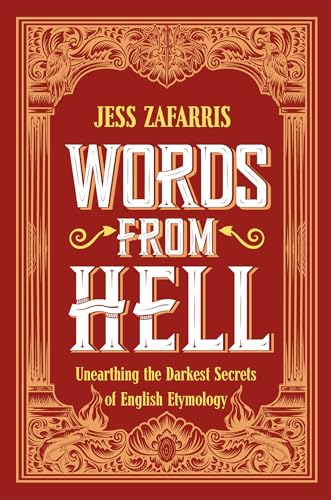My thanks to both NetGalley and the publisher Chambers Books for an advance copy of this book dealing with the history, the use and corruption of certain words, and how some still have a stigma today that is hard to use in polite society.
One of my biggest regrets is that I am not a fluent speaker of any language. Not even of the language that was spoken in my home, that I have been taught in and use at work all the time. English. This language is still a mystery to me. I still have to remember my there, their and they're, I before E accept after C, all the things that Schoolhouse Rock instilled in me before I went to school and forgot everything. Though when I first started working in Waldenbooks the book Anguished English by Richard Lederer, was a popular title, and Dell Publishing came out with a whole series of books on words that I devoured, and somehow retained. Though I can't spell them, and probably are not using them right. So I have always loved books on words. And now I think I have a new Gosh Dang favorite in Words From Hell:Unearthing the Darkest Secrets of English Etymology by writer and word fiend Jess Zafarris. The book goes into the history of words that can be used to be both profane, and supernatural, violent, anatomically descriptive and much more.
The book begins with a introduction that discusses the author's pas in writing books about word origins for young readers, and moving up to words that children would have their mouths washed out with soap for using. From there we look at word origins, with an overview of language, and how words are brought in, adapted or corrupted and move on. The book is then broken into 10 chapters dealing with words that could be used as obscenities, words about the body, words about war, the human nature for bias and bigotry, booze and drugs, and of course spicy words about spicy things and descriptions. These chapters have brief preamble, followed by an alphabetical listing of words to fit the section. For example Assassin in Chapter Eight. The word is presented with a history of where it came from, prominent uses, how the word has been corrupted, and use today, with examples.
A very fun look at language, and language that is usually pooh-poohed by most, but as the political discussion becomes more course, it helps to understand where these words are coming from, and more importantly, how to use them. Zafarris is very funny, and a very good writer which helps keep that narrative moving. Books like this can get in its own way with just lists that seem daunting to the reader. I suggest one shouldn't just sit down and read this, more look at it a section at a time, and let the words soak in. This way one can learn how to incorporate these words into one's vernacular be it telling a boss off, or getting cut off in traffic.
A good gift for a friend that uses a lot of blue language as a way to increase their verbiage, and hopefully make them laugh. This is both a wonderful reference, and a fun book to flip through, and I found it quite enjoyable, and laughed a lot. Again a nice gift for certain people at the holidays.

